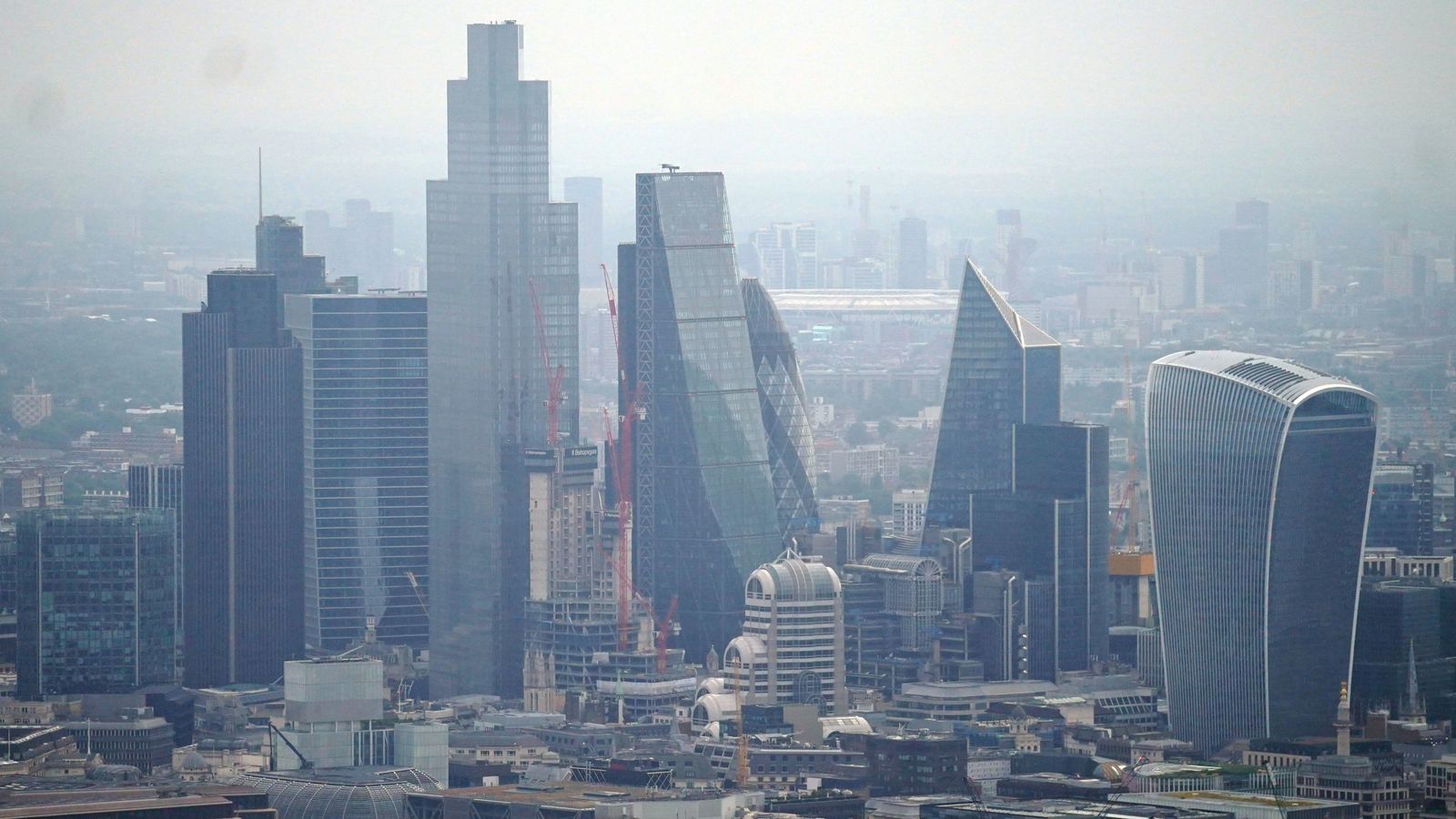FTSE 100 reaches all-time high
Signs of peaked inflation, slowing interest rate rises and a tight US labour market have raised the index of multinational companies, largely not reliant on a healthy UK economy.

London's FTSE 100 Index has reached an all-time high at 7905 earlier this afternoon.
The Financial Times Stock Exchange index of the 100 most valuable companies on the London stock exchange beat the previous record of 7,903.5 set in May 2018.
It comes as central banks - including the Bank of England and the US Federal Reserve - have this week signalled that their programmes of interest rate rises either have, or may be, moderating as they believe inflation to have peaked.
On Thursday the Bank presented a less gloomy economic forecast despite reiterating its prediction that the UK economy is headed for a technical recession, defined as when an economy experiences two quarters of economic contraction.
It also signalled that the latest rise - which brought the interest rate to 4%, thereby making borrowing more expensive - may be the last for some time.
The latest bout of good news for the global economy came in the form of the US jobs announcement. On Friday afternoon the Bureau of Labor Statistics reported 517,000 jobs were added in January, more than doubling the 185,000 expected.
At the same time the rate of US inflation appears to have peaked and stood at 6.5% in the first month of this year.
BMW in talks with UK government over £75m grant for electric Mini
The FTSE 100 blue-chip index, considered to be financially sound, has been buoyed by the comparatively positive statements from monetary policy authorities.
Further boosting the FTSE is China's eased lockdown restrictions.
The new, looser COVID-19 measures effectively reopened the economy to the world. It raised hopes of global economic recovery, as travel to and from the world's second largest economy has been made more easy and factory lockdowns - which have caused supply chain woes - are hoped to be a thing of the past.
Constituents of the FTSE 100 are a variety of powerful companies that operate globally and are not solely reliant on the health of the UK economy.
They include oil giant Shell (who this week reported record profits) drinks behemoth Coca-Cola and British Gas owner Centrica.
Multinational banks such as HSBC also form the index alongside pharma companies including GSK and fashion company Burberry.
It was a strong 2023 start for the UK's best-known index which for weeks has come close to the record high. In just three weeks into the new year it was already up by just under 5.5%, better than the 0.9% growth it eked out for the whole of 2022.
Companies comprising the index have the highest market capitalisation on the London stock exchange: the greatest total value of shares issued.
The index was launched in 1984 with a starting score of 1,000.
-sky news







